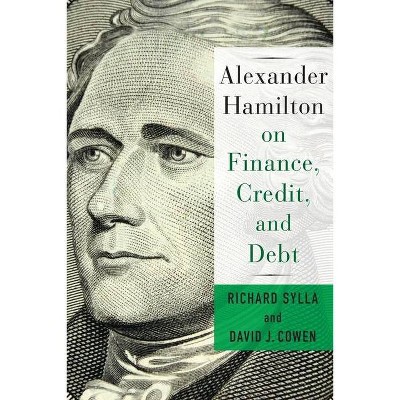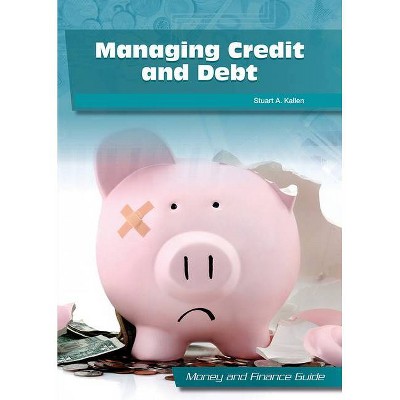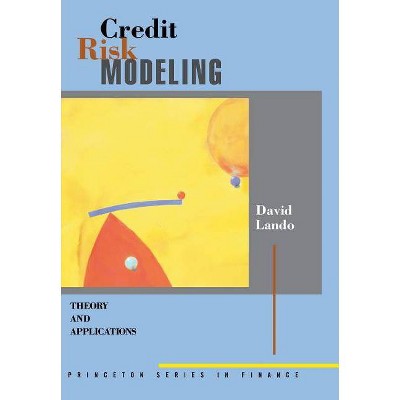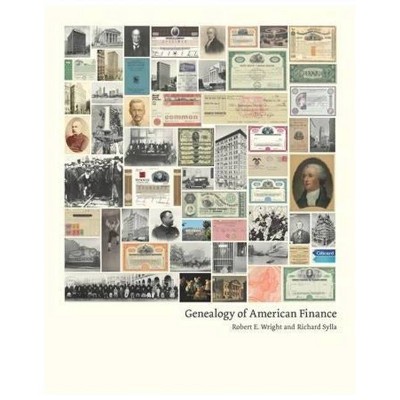Alexander Hamilton on Finance, Credit, and Debt - by David Cowen & Richard Sylla (Paperback)

Similar Products
Products of same category from the store
AllProduct info
<p/><br></br><p><b> About the Book </b></p></br></br>This book traces the development of Alexander Hamilton's financial thinking, policies, and actions through a selection of his writings. The financial historians and Hamilton experts Richard Sylla and David J. Cowen provide commentary that demonstrates the impact Hamilton had on the modern economic system.<p/><br></br><p><b> Book Synopsis </b></p></br></br>While serving as the first Treasury Secretary from 1789 to 1795, Alexander Hamilton engineered a financial revolution. Hamilton established the Treasury debt market, the dollar, and a central bank, while strategically prompting private entrepreneurs to establish securities markets and stock exchanges and encouraging state governments to charter a number of commercial banks and other business corporations. Yet despite a recent surge of interest in Hamilton, U.S. financial modernization has not been fully recognized as one of his greatest achievements. <p/>This book traces the development of Hamilton's financial thinking, policies, and actions through a selection of his writings. The financial historians and Hamilton experts Richard Sylla and David J. Cowen provide commentary that demonstrates the impact Hamilton had on the modern economic system, guiding readers through Hamilton's distinguished career. The book showcases Hamilton's thoughts on the nation's founding, the need for a strong central government, confronting problems such as a depreciating paper currency and weak public credit, and the architecture of the financial system. His great state papers on public credit, the national bank, the mint, and manufactures instructed reform of the nation's finances and jumpstarted economic growth. Hamilton practiced what he preached: he played a key role in the founding of three banks and a manufacturing corporation, and his deft political maneuvering and economic savvy saved the fledgling republic's economy during the country's first full-blown financial crisis in 1792. Sylla and Cowen center Hamilton's writings on finance among his most important accomplishments, making his brilliance as an economic policy maker accessible to all interested in this Founding Father's legacy.<p/><br></br><p><b> Review Quotes </b></p></br></br><br>A fascinating examination of Hamiltonian economics.--Washington Times<br><br>Alexander Hamilton was the architect of the American financial system that endures to this day, making his founding-era writings on topics such as the national debt, trade, foreign investment, and central banking both resonant and relevant to contemporary readers. Sylla and Cowen provide helpful historical context, but they largely let Hamilton's genius speak for itself. From short essays that resemble the modern op-ed to legal documents to his reports to Congress as Treasury Secretary, the book offers a compelling window into Hamilton's visionary thinking on economic matters.--Robert E. Rubin, co-chair emeritus, Council on Foreign Relations, and former U.S. Treasury Secretary<br><br>Hamilton's writings always impress for their clarity of argument and, especially, for their prescient vision of the future of the American economy. Thanks to Richard Sylla and David J. Cowen for reminding us of that.--Ben Bernanke, former chairman of the Board of Governors of the Federal Reserve System<br><br>Seen the musical? Now read Hamilton's original letters setting out his vision for the financial revolution that created today's American economy--all excellently and helpfully edited by Richard Sylla and David J. Cowen.--Lord Mervyn King, former Governor of the Bank of England<br><br>Sylla and Cowen make clear to readers that Hamilton had a solid historical foundation and a farsighted vision for his policy prescriptions. Without their expert guidance, this structure would often be missed even if one were to read through a larger set of writings. I could not imagine a better team to write this book.--Matthew Jaremski, Colgate University<br><br>This is undoubtedly a treasure trove for financial and public policy geeks, and the book will also help lay readers go beyond the hit musical in understanding Hamilton's lasting significance.--Publishers Weekly<br><p/><br></br><p><b> About the Author </b></p></br></br>Richard Sylla is professor emeritus of economics and the former Henry Kaufman Professor of the History of Financial Institutions and Markets at New York University Stern School of Business. He is a research associate of the National Bureau of Economic Research and chairman of the Museum of American Finance. Among his books are <i>Founding Choices: American Economic Policy in the 1790s</i> (2011) and<i> Alexander Hamilton: The Illustrated Biography </i>(2016). <p/>David J. Cowen is president and CEO of the Museum of American Finance. He is author of <i>The Origins and Economic Impact of the First Bank of the United States, </i><i>1791-1797</i> (2000) and coauthor of <i>Financial Founding Fathers: The Men Who Made America Rich</i> (2006).
Price History
Price Archive shows prices from various stores, lets you see history and find the cheapest. There is no actual sale on the website. For all support, inquiry and suggestion messages communication@pricearchive.us

















